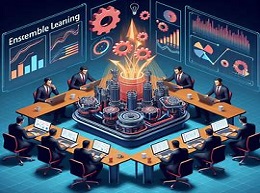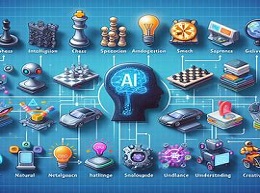The Future of AI in Education: Personalized Learning

The Promise of Personalized Learning with AI
Artificial Intelligence (AI) is revolutionizing education by enabling personalized learning experiences tailored to the unique needs and preferences of each student. As AI technologies continue to advance, they hold the potential to transform traditional educational paradigms, empower educators, and enhance student outcomes. In this article, we delve into the future of AI in education, with a focus on personalized learning.
Understanding Personalized Learning
Customized Instruction
Personalized learning involves tailoring instruction and educational content to meet the individual needs, interests, and abilities of each learner. By leveraging data analytics and AI algorithms, educators can create adaptive learning pathways that optimize student engagement and achievement.
Adaptive Assessment
AI-powered assessment tools analyze students' performance and learning patterns in real-time, providing immediate feedback and adaptive assessments that guide instructional decision-making and support ongoing skill development.
The Role of AI in Personalized Learning
Intelligent Tutoring Systems
AI-driven tutoring systems, such as chatbots and virtual tutors, offer personalized support and guidance to students, answering questions, providing explanations, and offering targeted feedback to reinforce learning concepts.
Example: Duolingo's AI-Powered Language Learning
Duolingo, a popular language learning platform, utilizes AI algorithms to adapt lesson difficulty based on learners' proficiency levels, track their progress, and recommend personalized practice exercises to reinforce language skills.
Data-Driven Insights for Educators
Learning Analytics
AI-powered learning analytics platforms analyze student data to identify learning trends, predict performance outcomes, and inform instructional strategies, empowering educators to make data-driven decisions and tailor interventions to support student success.
Example: Brightspace Insights by D2L
Brightspace Insights, an AI-powered analytics tool by D2L, provides educators with actionable insights into student engagement, learning behaviors, and performance indicators, enabling them to optimize teaching strategies and support student learning effectively.
Addressing Learning Diversity and Inclusion
Equity and Accessibility
AI in education has the potential to promote equity and accessibility by providing personalized accommodations and support for students with diverse learning needs, including those with disabilities or English language learners.
Example: Learning Tools by Microsoft
Microsoft's Learning Tools leverage AI to improve accessibility and inclusivity by offering features such as text-to-speech, immersive reader, and personalized learning experiences that cater to diverse learning styles and preferences.
Challenges and Considerations
Data Privacy and Security
Ensuring the privacy and security of student data is paramount in AI-driven educational environments, requiring robust safeguards and compliance with data protection regulations to protect sensitive information.
Algorithmic Bias and Fairness
AI algorithms may exhibit bias or reinforce existing disparities in education, particularly if trained on biased datasets or lacking diversity. Addressing algorithmic bias and promoting fairness in AI systems is essential to ensure equitable learning opportunities for all students.
Future Directions and Opportunities
Personalized Lifelong Learning
AI-driven personalized learning extends beyond traditional classroom settings to support lifelong learning and professional development, enabling individuals to pursue personalized learning pathways tailored to their career goals and interests.
Collaborative Intelligence
AI technologies foster collaborative learning environments where students engage in peer-to-peer interactions, problem-solving, and knowledge sharing, harnessing the collective intelligence of diverse learners to drive innovation and creativity.
Shaping the Future of Education with AI
As AI continues to evolve, its impact on education will be profound, ushering in a new era of personalized learning that empowers students, engages educators, and transforms learning outcomes. By harnessing the potential of AI technologies to personalize instruction, promote equity, and foster lifelong learning, we can create a future where education is accessible, inclusive, and tailored to the needs of every learner. Together, let's embrace the transformative power of AI in education and unlock the full potential of personalized learning for generations to come.














